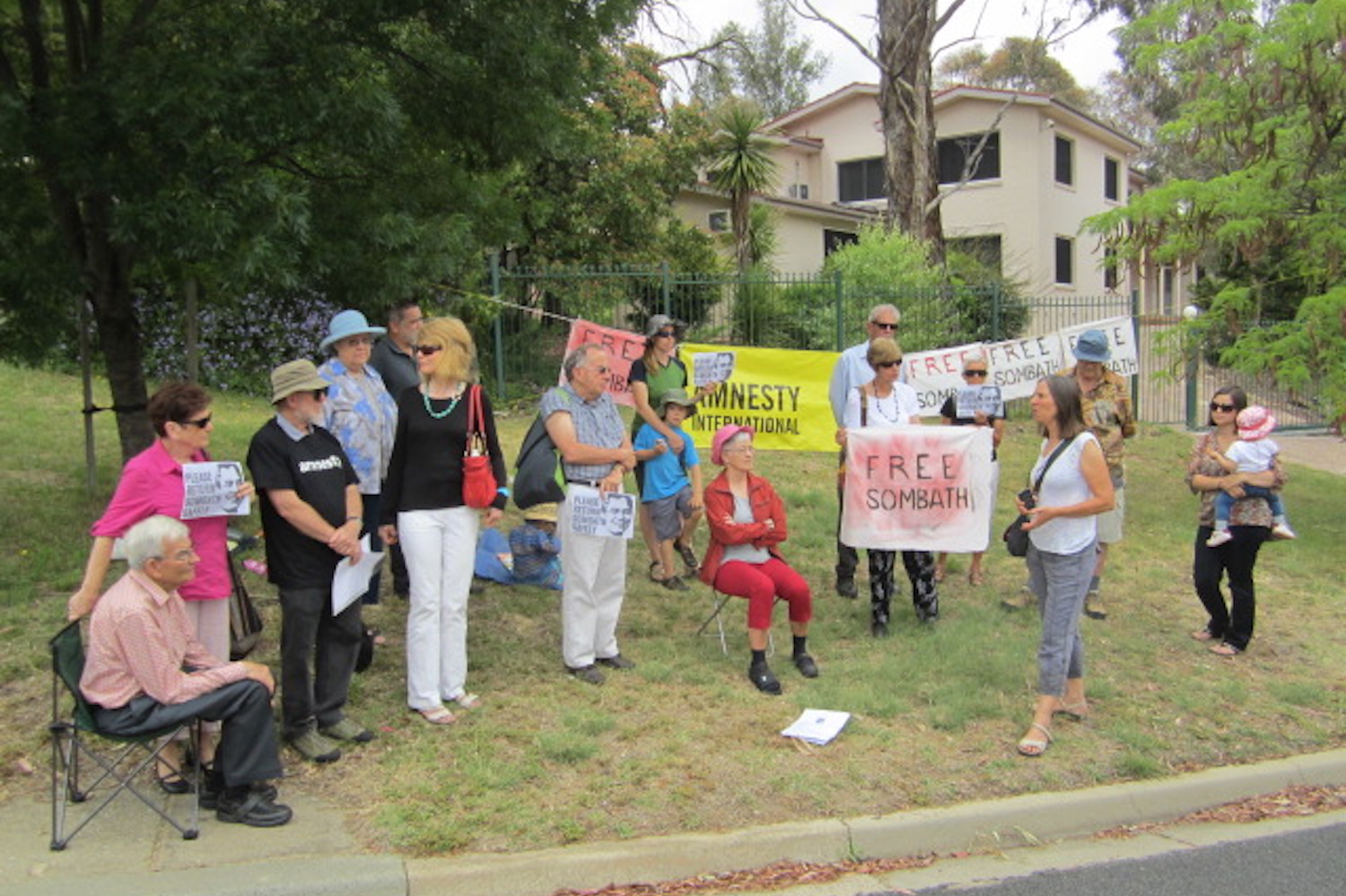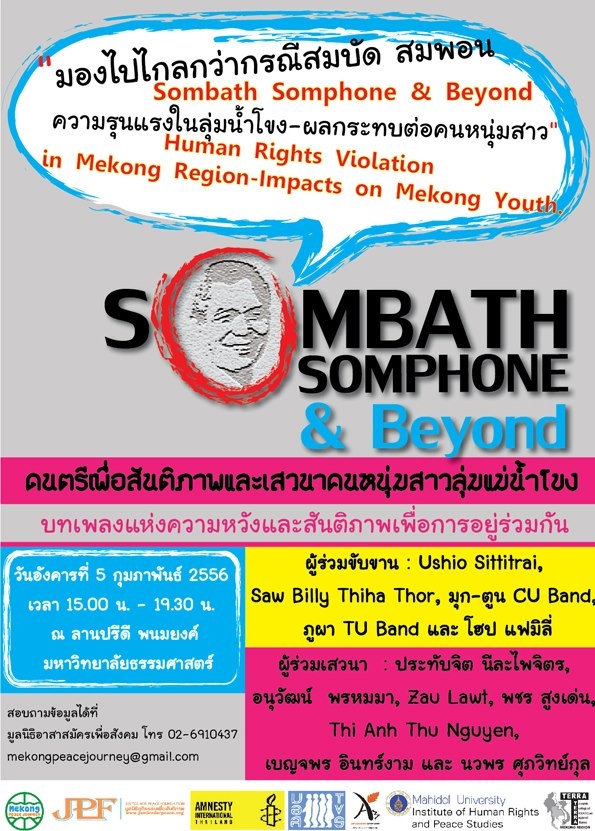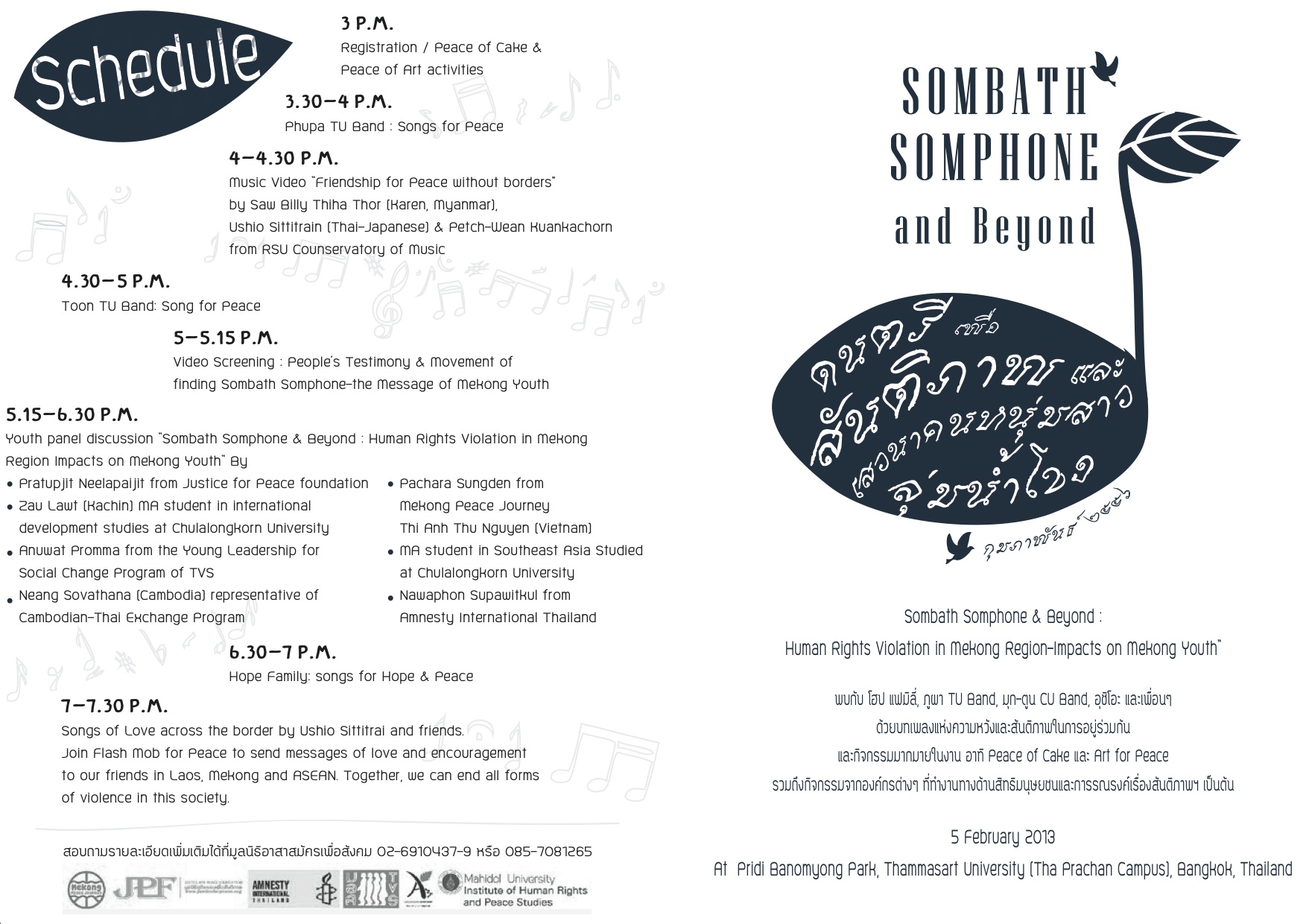The Nation: 25 February 2013
Group’s claims to being a people-oriented community are at stake
The disappearance of Sombath Somphone in police custody last December continues to haunt Laos, once considered the “heavenly land” in continental Southeast Asia. With regional and international pressure increasing by the day, it is amazing to watch the old guard in Vientiane playing things out. For decades, Laos has escaped international scrutiny because it is a small and landlocked country without any strategic imperative. However, with the rise of China, Laos has become an important strategic outpost. As such, the country has brought attention to itself.
Laos joined Asean in 1997 without much fanfare. It delayed its membership for two years for fear that it would upset ties with China. Since joining the grouping, it has maintained a low profile all along, fearing controversy. However, with its ongoing mega-dam construction projects, it has been hard for Laos to remain silent on these issues, especially as they relate to the environment and villagers’ relocation. For instance, the construction of Xayaboury Dam has already caused havoc within the communist hierarchy – who are only used to affirmative answers – because of the myriad negative views against the dam.
Now, in a globalised world, Laos has to contemplate which route it wants to pursue. The recent reforms in Myanmar have already shaken the Laotian establishment. Myanmar’s political reforms were progressive in comparison with the pace of reforms in Laos since 1984. The country can no longer hide in obscurity and hope to get away with – if the worst fears of some are realised – the murder of one of its most famous sons.
When Asean was drafting its charter and terms of reference for human rights, the Laotian delegates were the most conservative and persistent in ensuring that the grouping would not move too fast. However, with the dramatic reforms in Myanmar, Asean as a whole has to think hard about how it can reform to provide further dynamics for political and social transformation. Much has been said about economic cooperation.
The time has come for Asean to speak up. Secretary General Le Luong Minh needs to display his leadership. During the weeks since he has assumed the position, he has spoken widely on the South China Sea and regional integration. How can Asean become one community when its leaders continue to turn a blind eye to assaults on the human dignity of their own citizens?
The notion that Asean can be a people-oriented community will be a farce as long as none of the Asean leaders speaks out on human-rights violations.
The disappearance of Sombath reveals the true nature of an archaic, inward-looking group of communist leaders who are becoming increasingly irrelevant to the dynamic changes within the region. Asean must take up the case of Sombath; its credibility is at stake. The Laotian government must be held accountable for his disappearance and can not longer remain mute. In the absence of cooperation from Vientiane, Asean should join hands with the international community to ensure that justice is done in this landlocked country that for too long has been far beyond the watchful eyes of the world.




 Mr Phongsavath expressed his appreciation of the concerns of the delegation, but said that the Lao government was even more concerned about the issue because Mr So mbath is a Lao citizen, according to a press release issued by the Ministry of Foreign Affairs.
Mr Phongsavath expressed his appreciation of the concerns of the delegation, but said that the Lao government was even more concerned about the issue because Mr So mbath is a Lao citizen, according to a press release issued by the Ministry of Foreign Affairs.